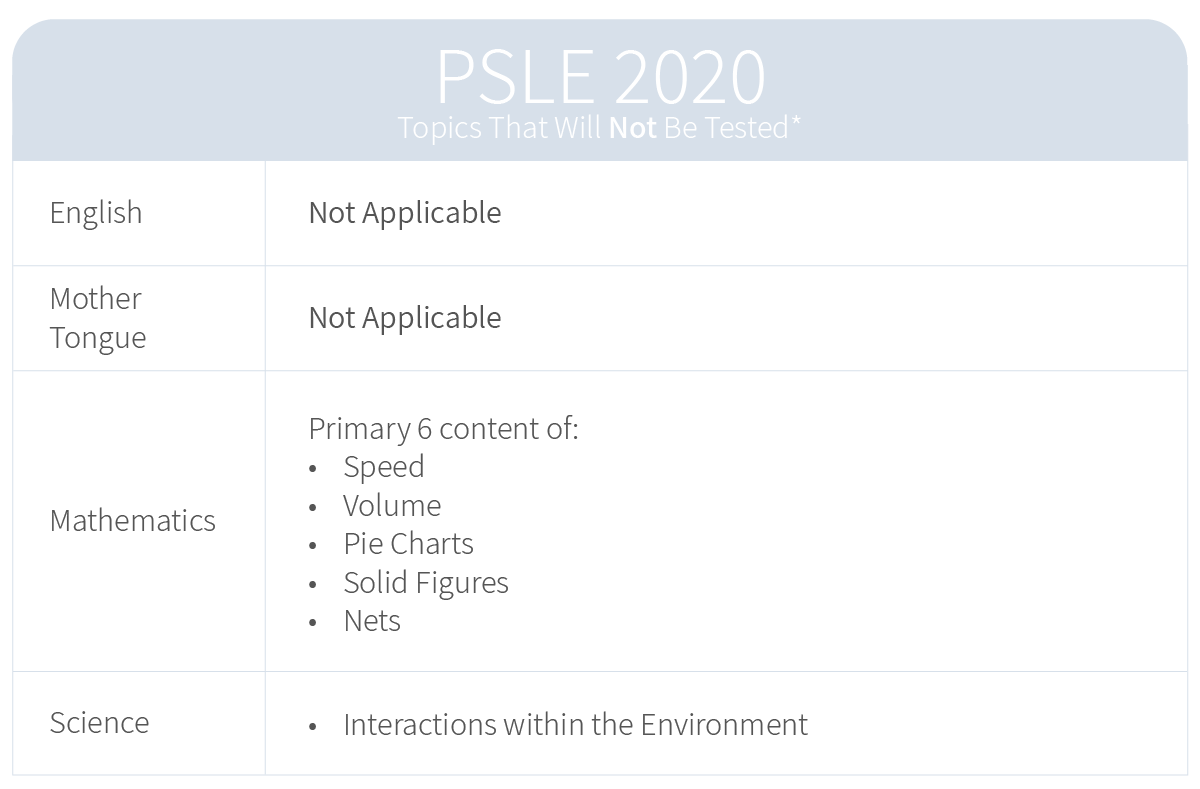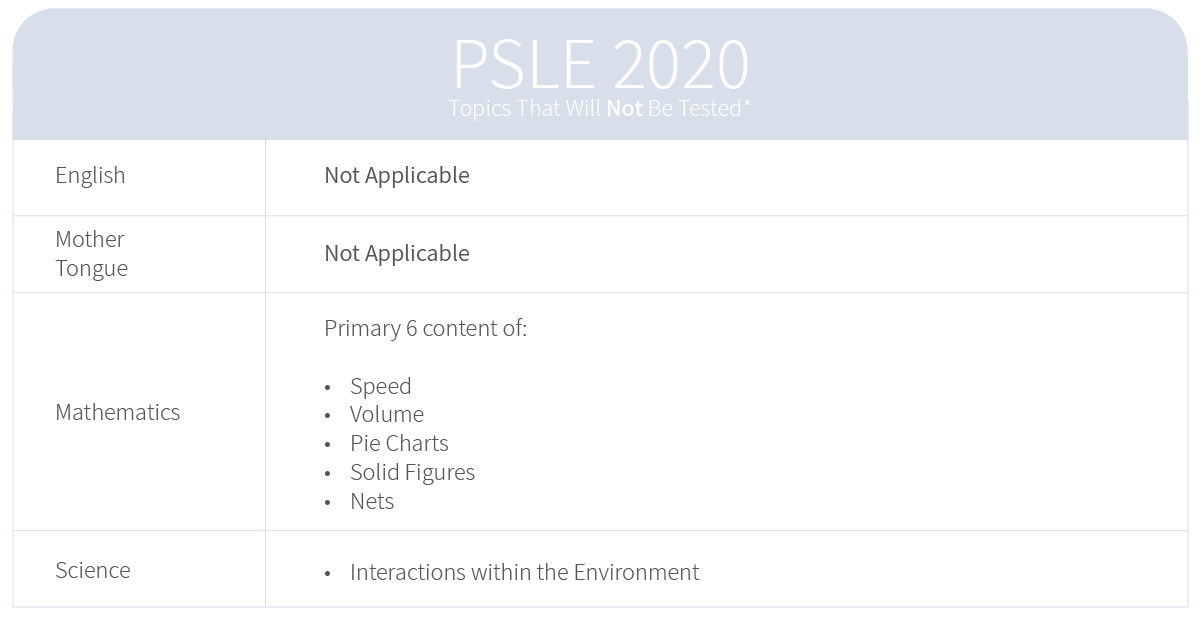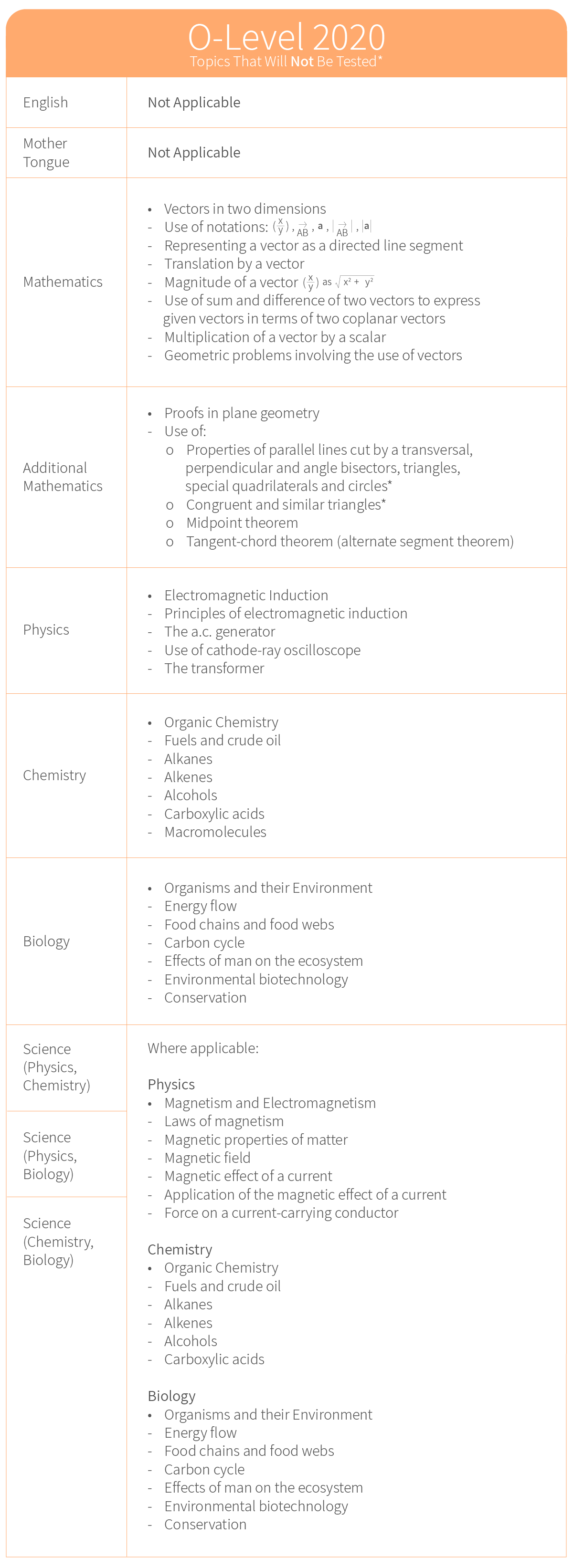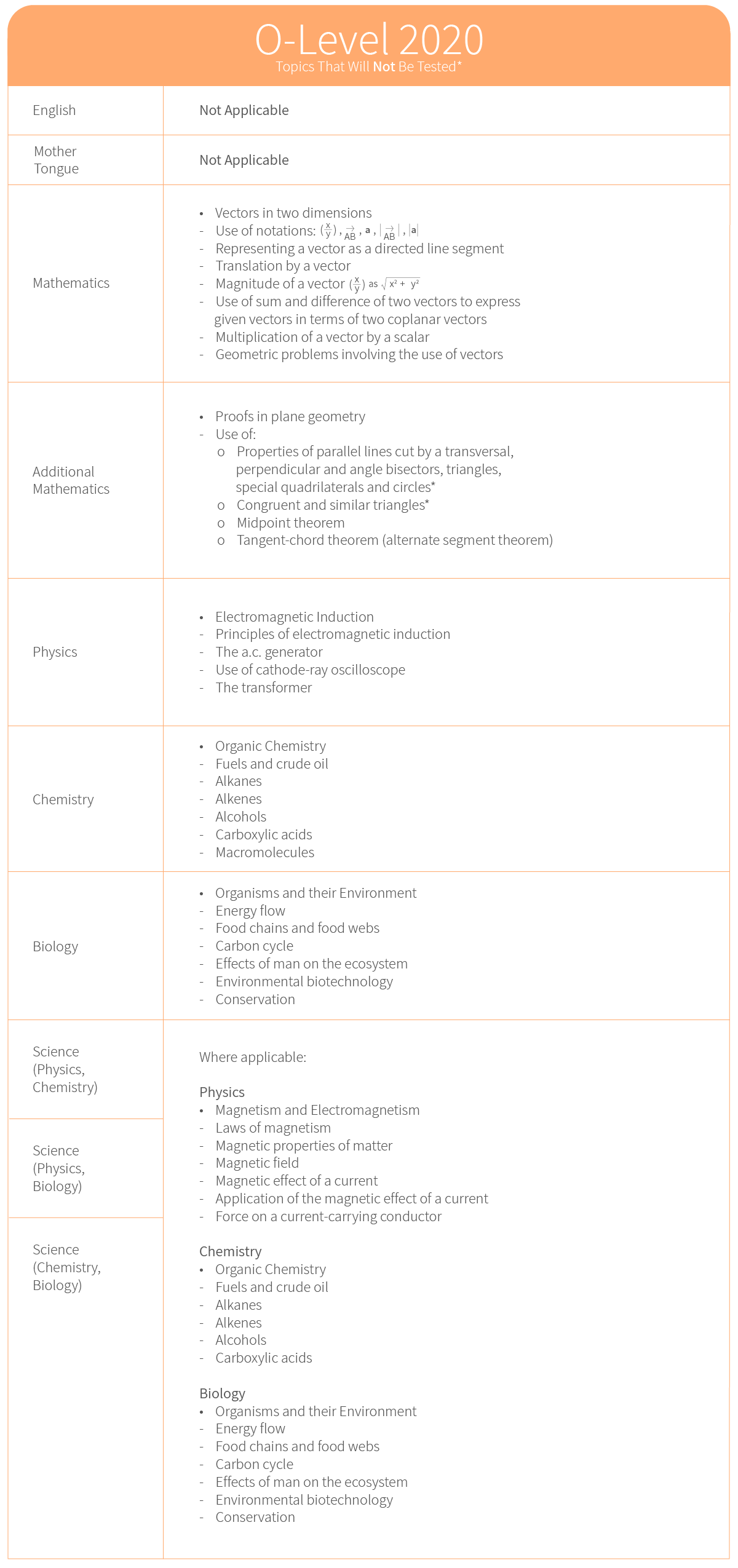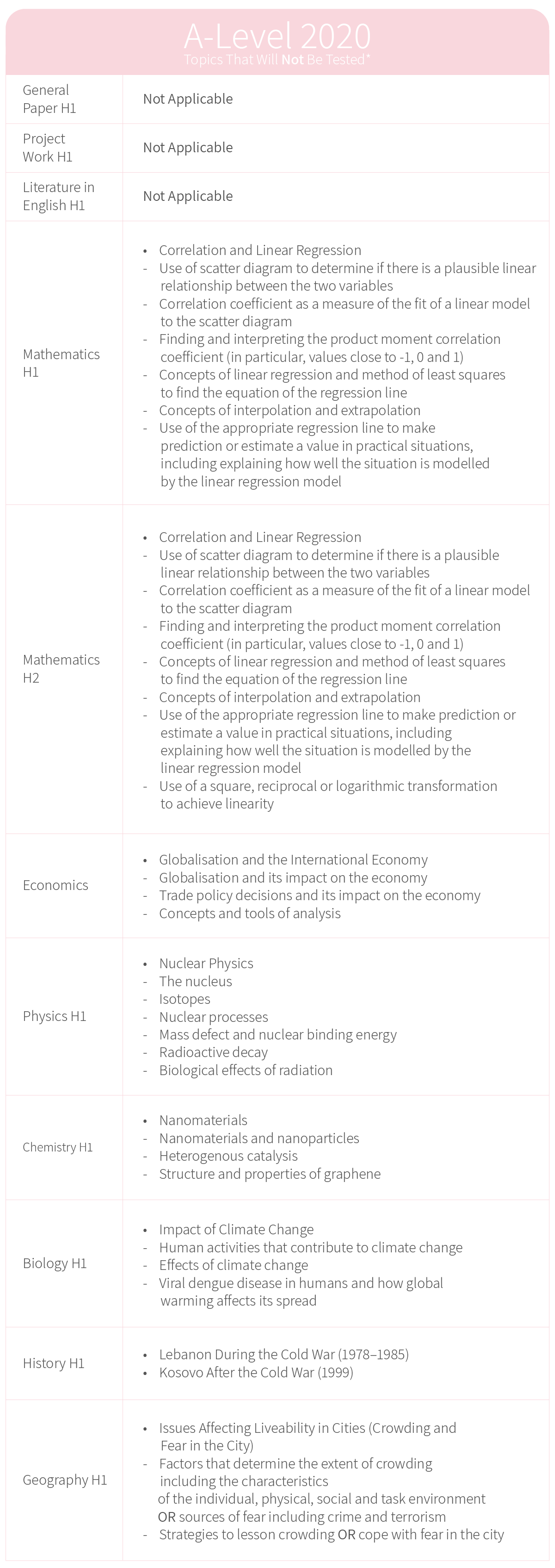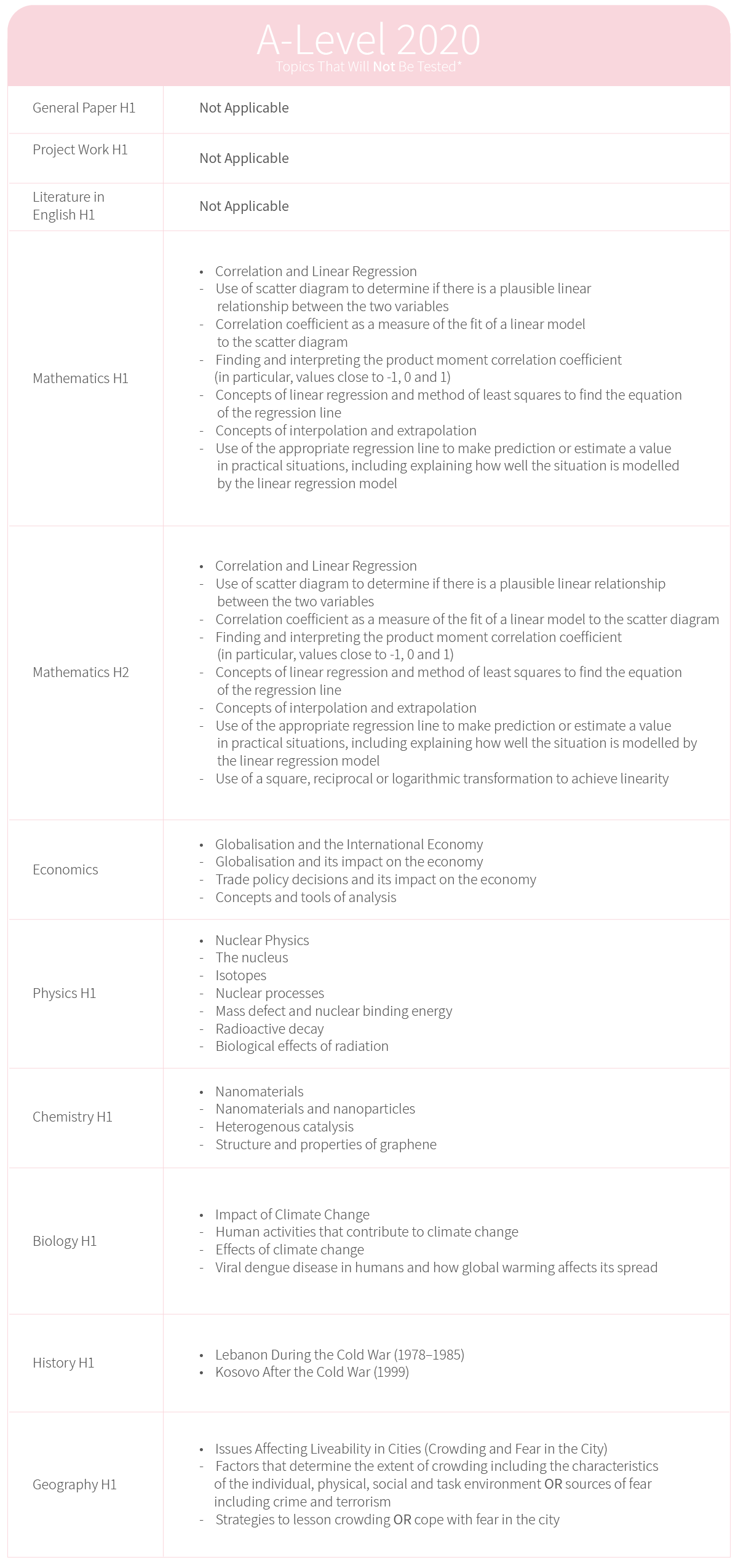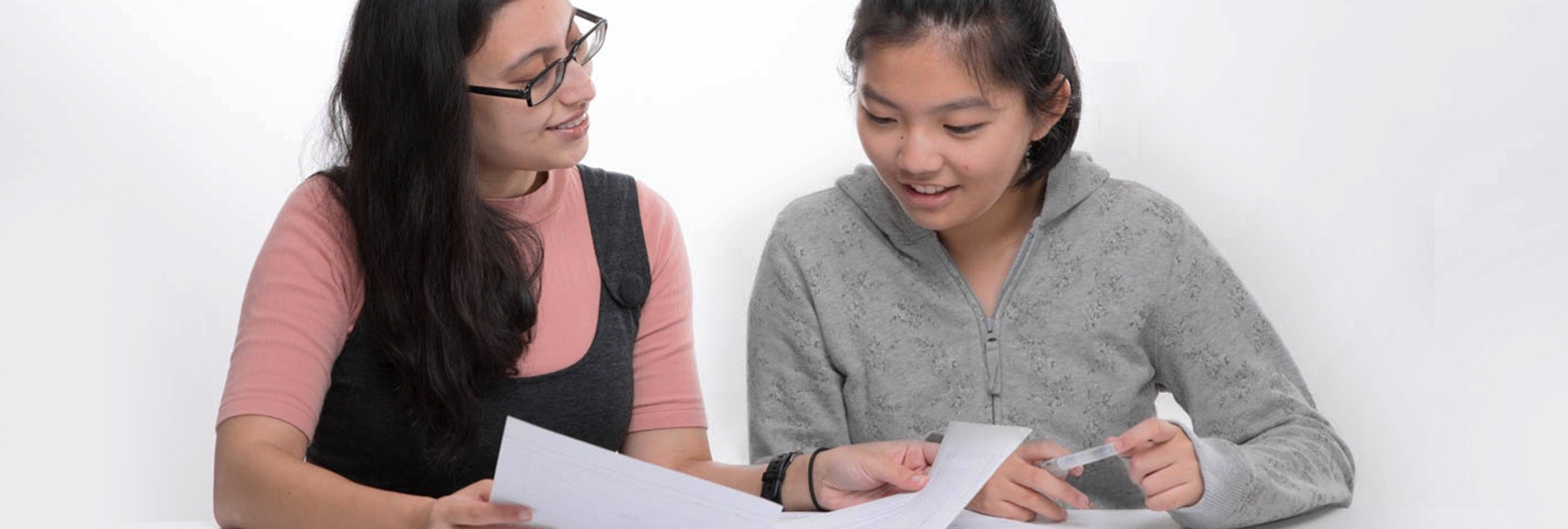
One of the most significant lasting effects from home-based learning during the circuit breaker period was announced last month, when the Singapore Examinations and Assessment Board (SEAB) released its list of topics across various subjects that will be cut from national examinations for graduating students.
The Ministry of Education said these Common Last Topics are typically taught towards the end of the academic year, and it made the decision to cut the topics based on the impact of the extended circuit breaker on curriculum time.
We appreciate that these sweeping changes may be causing no small amount of anxiety for graduating students and their parents, and are committed to providing the best support we can. To begin with, we have put together this simple FAQ article with information you need to know and some advice on how best to cope with the impact of the changes.

Is my child affected by the removal of the Common Last Topics?
Your child will be affected by the removal of examination topics if he or she is in a graduating cohort and is taking a national examination such as the PSLE or the ‘O’ and ‘A’ Level examinations this year.
This means nearly all Primary 6, Secondary 4, and JC2 students will have to prepare for their exams taking into account the topics that have been removed. Children not taking a national examination this year are not affected.
The removal of the Common Last Topics only means that they will not appear as questions in national examinations so as to “ease the pressure off teachers and students in catching up with the curriculum”, Education Minister Ong Ye Kung said. The topics will still be taught in classes as far as possible.

How do I find out which topics have been removed?
Your child’s school should have contacted you with the information by now, but the full list of topics that have been removed for every subject can also be found on SEAB’s website.
You should also note that there are no Common Last Topics for the language subjects such as English and the mother tongue subjects, which MOE considers “skill-based” subjects. Instead, SEAB will take into consideration the disruptions to curriculum time during marking and grading when students are assessed.
We have listed some of the topics for more widely read subjects in the tables below, and also provided links to the SEAB’s website for more details.
*For more information about the full range of the PSLE subject syllabus, please click here.
*For more information about the full range of the O-Level subject syllabus, please click here.
*For more information about the full range of the A-Level subject syllabus, please click here.

How will my child’s examination preparation be affected, and what can I do about it?
Because certain topics will no longer be tested, your child’s revision should focus on the rest of the topics instead.
This will mean knowing which questions to omit when doing revision papers, for example, so as not to waste time and energy preparing needlessly.
Different subjects require different strategies and approaches to tackle. Talk to your child’s teachers or tutors about how they are adjusting your child’s learning and revision process so you can also help supervise your child at home.
Find out which of the remaining topics your child might need more practice for, although you should avoid attempting to second-guess too much what the Common Last Topics will be replaced by in the examination papers.
Consultations and face-to-face lessons in school for students in graduating cohorts have also been allowed since 19 May 2020. Maximise the time your child has with his or her teacher by making sure they go in prepared with questions to ask, whether the questions are from a worksheet or revision paper, or simply to clarify about what your child needs to be focusing on in his or her revision.
Hear From a TLL Expert — Dive Deep
Phua Kai Ying, Academic Director of The Learning Lab
With the removal of common last topics, I see the need for students to have a more thorough understanding of the topics that were previously taught. Compared to previous years, there may be more questions that require higher-order thinking skills.
For example, schools may choose to set more Maths heuristics questions, or set tougher questions relating to ‘Circles’ and ‘Algebra’ for the Primary 6 Mathematics paper. Having lesser topics to revise for the national examinations does not necessarily mean that the exam is going to be smooth sailing.
Be Prepared
Take the opportunity to get your child to ask their teachers about the questions or topics that they are unsure of. Any doubts should be cleared before they sit for their year-end examinations.
It is also important to note that during your child’s revision, they should fully understand the concept and logic of the topics rather than rely on rote learning or memorisation.
An equal amount of hard work is still required to prepare students for the national examinations, despite the removal of common last topics. Having a timetable and setting aside time for revision is still crucial.
Play Catch Up
While there are now lesser topics that graduating students have to study for, they should be mindful of what they have missed especially when they make the transition to the subsequent academic level in the following year. It will take more effort and practice on their part to understand the removed topics that will be taught on a more advanced level.
During the year-end holidays, it is recommended that students practice self-learning and familiarise themselves with the topics that were removed, this will ensure that they will have a leg up when they proceed in learning about the topics in-depth when they move on to secondary school or junior college.

Adapting to the New Academic Normal Together
The COVID-19 outbreak has caused widespread disruption to the education of students all around the world, most of all perhaps to those belonging to graduating cohorts.
Common Last Topics are just one among many changes and challenges that students have to face, and adapting quickly and effectively will be crucial ahead of the national examinations.
Find out more about our English, Maths and Science programmes.
At The Learning Lab, we are dedicated to helping you and your child navigate these unfamiliar waters together. Click here to find out how our Term 3 curriculum can equip your child with the confidence and knowledge to conquer the rest of the academic year.
A key milestone in a student's academic journey, achieving success at the Primary School Learning Examination (PSLE) is the first step in establishing your child's future learning path.
The final stretch of the secondary school journey marks an important year filled with challenges in the lead up to the O-Level that can be conquered through refining 4 years’ worth of academic knowledge.
Give your child the means to bring their A game for the A-Level exams with an emphasis on structure, content and precise application of skills, and guidance on how to refine essential exam techniques.
If you have any questions about our range of programmes or class schedules, you may reach us via our website live chat from 10am to 8pm on weekdays and 9am to 6pm on weekends, or drop us an email at enquiry@thelearninglab.com.sg.

